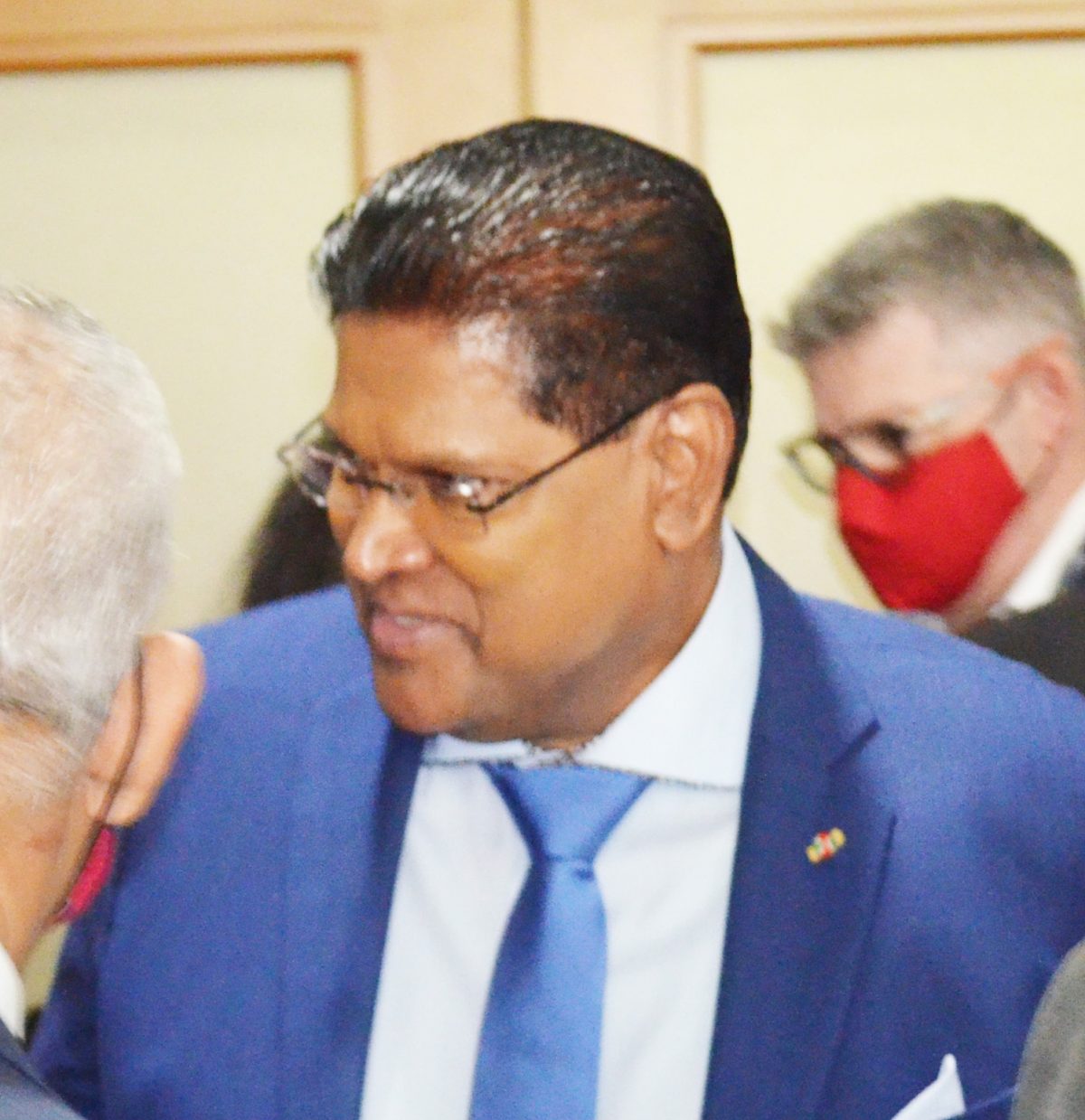The fact that Guyana has been ‘out of the blocks’ first in terms of the laying down a definitive ‘marker’ underlining South America’s newly found clout as an oil ‘power,’ all of the portents including those that rely on dependable industry analyses suggest that Suriname is not too far behind. Talks between presidents Irfaan Ali and Chandrikapersad ‘Chan’ Santokhi for many months now have resulted in the materialisation of at least some plans for bilateral cooperation that point to some measure of planned collaboration in their oil & gas-related cooperation pursuits.
The portents, however, do not negate questions from arising as to whether signs of government-to-government cooperation in the oil & gas sector will be automatically translated into a changed relationship insofar as the ongoing current Corentyne River dispute is concerned. Indeed, observers continue to point out that the high-profile bilateral contact between Georgetown and Paramaribo that has been in place for some time now, has not done a great deal to cause the incidents between Guyanese fishermen and Surinamese naval patrol vessels on the Corentyne River to go away.
At the opening ceremony of the recent high-profile three-day International Energy Conference and Expo Guyana in Georgetown, the Surinamese president returned to the theme of the game-changing nature of its oil & gas discoveries for South America, co-joining Brazil with Guyana and Suriname in an envisaged pooling of their gas resources to help move the rest of Latin America to a higher developmental plain.
From a hemispheric standpoint and given what is universally known to be the debilitating underdevelopment afflicting parts of the hemisphere, the Suriname president’s address to the Conference was likely to be one of the more important presentations in terms of its role in providing insights into just how the new-found oil bonanza can help bring about the transformation of what is largely an impoverished region.
In an address which appeared to resonate beyond its real-time delivery Santokhi told an audience that included not just key hemispheric political leaders, but a number of high-profile international oil and gas executives, that he envisaged the oil resources of Suriname, Guyana, and Brazil, impacting beyond the borders of their respective countries. The Surinamese president was quoted as saying that the three South American neighbours “have the same goal and commitment to our current and future generations” and that “as responsible leaders, we must look ahead, far ahead and if we do not start now, we will not only be left behind but we will waste opportunities… Guyana and Suriname now have a historic and unique obligation to manage their oil resources well, with adherence to internationally recognised and accepted environmental standards,” he added.
In Georgetown, Paramaribo, and the rest of the Caribbean, the significance of what the Surinamese president had to say would not have been lost on the other Caribbean Community (CARICOM) countries, knowing as they do that the two member states continue to be embroiled in a territorial dispute that has, on more than one occasion, flared up into hostilities. Significantly, in a presentation that steered clear of the river dispute, President Santokhi told the Conference that “the utilisation of the oil resources to the benefit of the hemisphere as a whole should proceed even as the region proceeds with the charting of a sustainable energy future,” and that significant investment aside, the realisation of the envisaged goals required that Guyana, Suriname, and Brazil, work together. “The question now,” Santokhi told the conference, “is how do we make that transition utilising our newfound resources wisely with modern technology to lay a solid foundation for a more diversified economy for generations to come?”
Nor did the Surinamese President neglect to draw the attention of the forum to the fact that while the emergence of Guyana, Suriname, and Brazil, as parts of the most-watched region globally insofar as energy resources are concerned, this was occurring against the backdrop of disturbing contemporary developments, not least, the COVID-19 pandemic, global instability arising out of political conflict, and global financial fragility, all of which, he said, would have an impact on oil recovery, flows, and prices in the period ahead.
“It is not only that we must transition from one energy to a cleaner and renewable one, but also we must consider how energy itself will transform our lives and economies as we go forward,” Santokhi averred, adding that he believed that “Suriname and Guyana with this new resource can help to mitigate global energy poverty which makes it difficult to develop productive lives.”
One feels that it is not a presentation that will go unnoticed among either policy makers or ordinary citizens in Guyana, Brazil, and Suriname, and even amongst much bigger audiences in the hemisphere.








